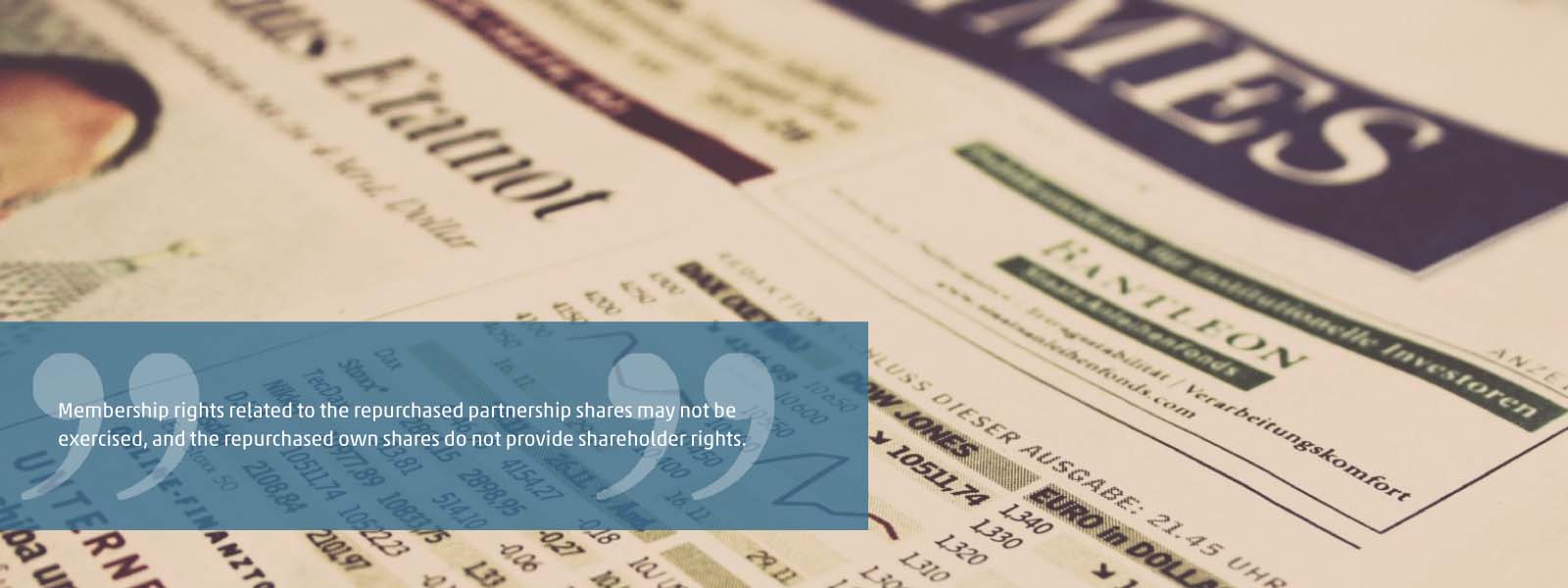A company must be careful if it wants to repurchase its own shares or partnership shares. Effective laws in Hungary (Act on Accounting, Civil Code) stipulate a number of requirements and regulations when repurchasing own shares or partnership shares that must be considered and complied with to ensure this business event is treated appropriately from an accounting perspective.
What are the conditions of a repurchase?
Own shares and own partnership shares are the company’s own equity investments repurchased (acquired) by the company itself.
The decision on the repurchase is always made by the supreme body, and is recorded in a members’ resolution in the case of limited liability companies. For companies limited by shares, the general meeting authorises the Board of Directors to acquire the own shares, but in exceptional cases – in the case of a transformation for example – prior authorisation may be disregarded.
In return for consideration, own shares and partnership shares may only be acquired if the conditions for payment of dividends are fulfilled at the company. Another condition for limited liability companies is that own shares and partnership shares may only be acquired from available assets in excess of the share capital, and that members must have paid their entire capital contribution. The regulation is similar in the case of companies limited by shares as well, as it is prohibited to acquire shares or partnership shares if the total nominal value/issue price has not yet been paid by the owners. The consideration for the own shares can be paid from the assets payable as a dividend.
Another important rule is in Hungary that membership rights related to the repurchased partnership shares may not be exercised, and the repurchased own shares do not provide shareholder rights, so when calculating the voting ratios, the relevant voting rights are deducted. Their share of the dividend must be distributed among the eligible members/shareholders.
Funds for repurchase, maximum repurchase
The funds for repurchasing own shares or partnership shares must be provided from the profit after tax and the disposable retained earnings recognised in the balance sheet or the interim balance sheet of the last financial year closed with financial statements, in a manner that ensures the equity reduced by the allocated reserve, the positive valuation reserve, and the repurchase value of the own shares does not fall below the amount of the registered capital. The data of the financial statements may be taken into account within six months of the reporting date.
The Civil Code in Hungary also stipulates a maximum limit for repurchasing own shares or partnership shares: For limited liability companies the capital contributions underlying the repurchased partnership shares may not exceed 50% of the share capital, while for companies limited by shares, repurchasing own shares or partnership shares is only possible up to 25% of the share capital.
Presentation in the financial statements
After the repurchase, an allocated reserve must be created from the retained earnings for the amount of the repurchase, which also sets the dividend payment limit. The repurchased own shares and partnership shares are recognised under securities in current assets in the balance sheet. The data related to their acquisition (reason for acquisition, number, nominal value, ratio to registered capital, amount of consideration paid) must be disclosed separately in the supplementary notes of the company.
Other rules in Hungary on repurchasing own shares or partnership shares
Own shares may not be acquired during a company establishment or an increase in capital, and when reducing capital, own shares must be withdrawn first. Neither single-person companies nor single-person companies limited by shares may acquire own partnership shares.
If a company limited by shares acted unlawfully during the repurchase process, it must withdraw the shares by reducing the share capital within one year of the acquisition. The company must sell the repurchased own partnership shares, give them to members free of charge or withdraw them within one year, and thereafter the allocated reserve can be reversed.
In the case of a sale, a gain between the selling price and the carrying value is recognised under other income from financial transactions, while any loss is recognised under other expenses on financial transactions.
In the case of a withdrawal, the registered capital is reduced with an amount equivalent to the nominal value, while retained earnings are increased or decreased with the difference between the nominal value and the (carried) repurchase value, as applicable.
It follows that companies need to consider a number of things when repurchasing own shares or partnership shares. It is best to consult with an accountant and a lawyer before making the decision, to ensure everything is implemented in accordance with the rules. Feel free to contact us, the accounting advisers of WTS Klient Hungary will be happy to help.











